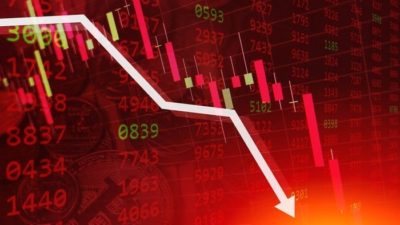This article was originally published on Fool.com. All figures quoted in US dollars unless otherwise stated.
Billionaire investor Warren Buffett and his company Berkshire Hathaway (NYSE: BRK.A)(NYSE: BRK.B) had their annual meeting earlier this month. As always, the event was full of insights for investors, who often mimic Buffett's investing moves. This time around, what stuck out to me wasn't what Buffett was saying or which stocks he was buying, but about what he was not doing. And that's evident through one number.
Berkshire's cash pile to top $200 billion this quarter
As of the end of March, Berkshire had $189 billion in cash and equivalents on its books, which is a record for the company. And Buffett says that figure is likely to grow even higher. "It's a fair assumption that they'll probably be at about $200 billion at the end of this quarter," he said.
Perhaps equally surprising is that Berkshire has also been reducing its position in iPhone and iPad maker Apple, selling 13% of its shares in the business. Apple, however, remains Berkshire's largest holding, accounting for approximately 40% of its overall portfolio.
Why isn't Buffett loading up on stocks?
With Berkshire's record levels of cash on hand, investors may find it odd that the billionaire investor isn't on a buying spree, especially at a time when the markets appear to be hot. It's definitely a notable development at a time when investors generally seem bullish. Year to date, the S&P 500 has risen more than 9% and has been hitting record levels of its own.
But Buffett isn't seeing great buying opportunities out there. "We'd love to spend it, but we won't spend it unless we think they're doing something that has very little risk and can make us a lot of money," he said.
Buffett is a value investor at heart and if he's not seeing much in the way of buying opportunities out there, and that should raise flags for investors. He always preaches that investors should be "fearful when others are greedy." And given the greed in the markets over the past year, it may not be a bad idea for investors to rethink which buying opportunities are actually good ones in the markets these days.
Have valuations become excessive?
The S&P 500 is averaging a price-to-earnings multiple of 27 right now. While that is higher than it has been in the past, it's below the 30 times earnings it was averaging in 2020 when meme stocks were starting to take off.
Many stocks, however, have been hot buys over the past year and are now trading at some high earnings multiples. These stocks have been the S&P 500's top performers in the past 12 months:
| Stock | 12-Month Performance | P/E Ratio |
|---|---|---|
| Super Micro Computer | 485% | 44 |
| Vistra | 274% | 56 |
| Nvidia | 219% | 76 |
| Constellation Energy | 168% | 29 |
| NRG Energy | 153% | 12 |
Data source: YCharts. Returns as of May 13, 2024.
Not only have the returns for some of these stocks become sky high, but the majority of their earnings multiples are now in excess of 40. Finding good quality stocks is becoming more challenging for investors. While a stock such as Nvidia certainly has a lot of long-term potential and that future growth may be worth paying a premium for, it also makes the stock vulnerable to a sell-off if it falls short of expectations given the high expectations that come with such inflated prices.
Now may be an optimal time for investors to reassess their positions
Buffett has trimmed his stake in Apple and taken some profits, and investors may want to consider doing the same with their own holdings. While you may not necessarily want to try timing the market, it's important to always consider valuations when buying and holding stocks because there is an opportunity cost associated with tying up money in an investment that may not be optimal.
There are many good, cheap stocks out there to buy. And unless you're incredibly bullish on a growth stock that's trading at a high multiple, you may want to consider other options.
This article was originally published on Fool.com. All figures quoted in US dollars unless otherwise stated.









